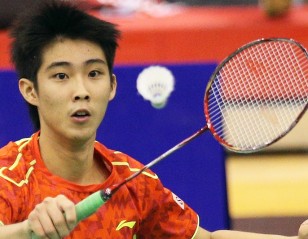
A Momentous Event for Europe – Thomas Cup Review
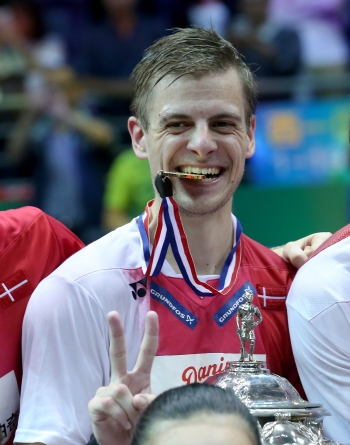 Denmark’s Thomas Cup victory on Sunday in Kunshan promises to be one of the most significant events in badminton history.
Denmark’s Thomas Cup victory on Sunday in Kunshan promises to be one of the most significant events in badminton history.
Denmark’s triumph promises to reverberate around the world, the effects of which will be felt in due course. To begin with, the victory will be a morale-booster for the country and for Europe, which had never experienced title-winning success at any of the three world team events: the Thomas Cup, the Uber Cup or the Sudirman Cup. That the 2016 team could do what none of their earlier squads – which included, at various times, greats like Erland Kops, Finn Kobbero, Morten Frost, Svend Pri and others – could achieve would make it all the more precious for the Danes. With the 2016 Rio Olympics coming up, there will be plenty of global attention on Denmark’s achievement.
Going into the TOTAL BWF Thomas & Uber Cup Finals 2016, Denmark did have a side with depth. Strength in singles and doubles ensured balance, but the big question was the impact doubles player Carsten Mogensen’s absence would have on the team. In the course of the week, Denmark had further problems, with Jan O Jorgensen and Mads Pieler Kolding having injury niggles, forcing recombinations in the doubles and requiring Denmark to field youngster Emil Holst in the semi-final decider against Malaysia. That neither Holst, nor any of his compatriots, choked under pressure was testament to their cool-headedness and preparation. It hadn’t been a smooth journey, but they were the ones left standing after the clouds had cleared.
Of the 16 teams that started out in the fray, Mexico were playing the finals for the first time. Players like Lino Munoz, Job Castillo and Luis Garrido, despite finishing last in Group A, were gallant all the way, considering that their group-mates were defending champions Japan, hosts China and the vastly-improved France.
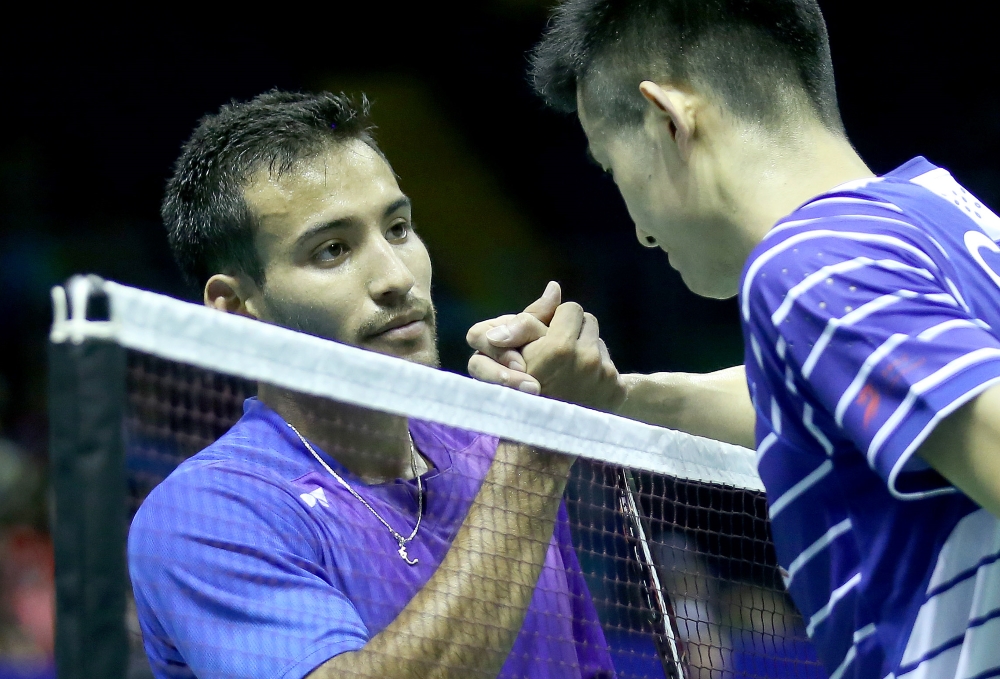
There were no surprises in the quarter-final line-up. China, Japan (Group A); Indonesia, Hong Kong (Group B); Malaysia, Korea (Group C) and Denmark, Chinese Taipei (Group D) made it to the last eight. The most significant of the group ties happened between Japan and China in Group A. The two teams, fighting as much for prestige as for topping the group, were engaged in a fiery battle to begin with, as Sho Sasaki troubled Chen Long and Hiroyuki Endo/Kenichi Hayakawa nearly stormed past Zhang Nan/Fu Haifeng. China survived these two encounters, and went on to sweep the tie 5-0.
But the aftereffects of this tie were felt a day later when China took on Korea. 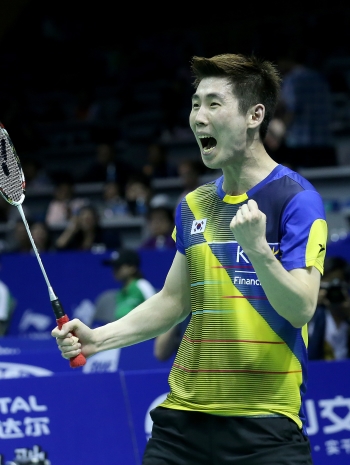 Son Wan Ho set a blistering pace in his opener against Chen Long, who, after equalling a first game loss, faded out in the third. Then followed a cracker of a match between Lee Yong Dae/Yoo Yeon Seong and Zhang Nan/Fu Haifeng. The Chinese duo had everything going for them with two match points, but the Koreans defended with the desperation of sinking men, and with some luck and plenty of pluck, took the contest to a third game. Zhang and Fu, exhausted by the intensity, had nothing left in the tank.
Son Wan Ho set a blistering pace in his opener against Chen Long, who, after equalling a first game loss, faded out in the third. Then followed a cracker of a match between Lee Yong Dae/Yoo Yeon Seong and Zhang Nan/Fu Haifeng. The Chinese duo had everything going for them with two match points, but the Koreans defended with the desperation of sinking men, and with some luck and plenty of pluck, took the contest to a third game. Zhang and Fu, exhausted by the intensity, had nothing left in the tank.
Lin Dan gave the hosts a fighting chance with his win over Lee Dong Keun, but China, fielding youngsters Li Junhui/Zheng Siwei, were soon out of the tournament as they were outwitted by seasoned campaigners Kim Gi Jung/Kim Sa Rang in the second doubles.
Korea had suddenly shot into reckoning as possible title contenders, but their euphoria didn’t last long as they ran into Indonesia. Korea needed Lee and Yoo to win the first doubles, but the top-ranked duo looked stiff and ill-at-ease against World champions Mohammad Ahsan/Hendra Setiawan. Anthony Ginting and Angga Pratama/Ricky Karanda Suwardi followed up and Indonesia were in the final, with a chance to reclaim the Thomas Cup that they had last won in 2002.
In the lower half of the draw, Denmark had deployed their limited resources smartly. Jan O Jorgensen had struggled in a group match against Chinese Taipei’s Hsu Jen Hao, but he was persisted with against Japan in the quarter-finals to enable the experienced Hans-Kristian Vittinghus a shot in the possible fifth match. Japan did well to bounced back from 0-2 to 2-2, but Denmark’s ploy worked, with Vittinghus prevailing over Riichi Takeshita in the fifth match.
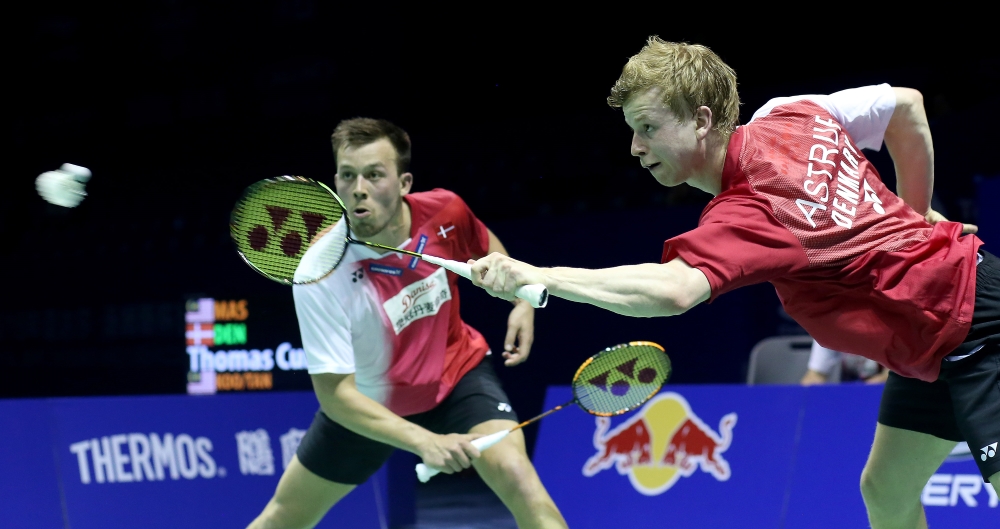
The Scandinavians once again showed great heart in the semi-finals. This time they were 0-2 down to Malaysia but bounced back through Vittinghus and Kim Astrup/Anders Skaarup Rasmussen. Emil Holst, playing third singles, showed no sign of being intimidated as he bulldozed Malaysia’s 2014 Thomas Cup hero Chong Wei Feng in straight games. Denmark were in their ninth final.
Given all the surprises of the week, it was something 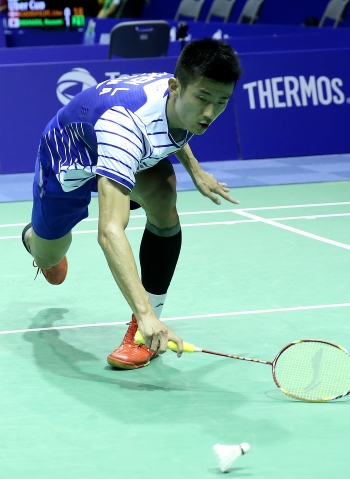 of an anti-climax that the final itself did not see any upsets; all five matches were decided in straight games. The contest was between Denmark’s singles and Indonesia’s doubles and that’s how it unfolded. The pivotal match was the first singles between Tommy Sugiarto and Denmark’s Viktor Axelsen; once Denmark had taken it, Indonesia had their backs to the wall. Indonesia’s second and third singles unravelled, with neither Anthony Ginting (against Jorgensen) nor Ihsan Maulana Mustofa (against Vittinghus) able to shake off their stage fright. Frozen by the occasion and their rampant opponents, Ginting and Mustofa looked lonely and lost.
of an anti-climax that the final itself did not see any upsets; all five matches were decided in straight games. The contest was between Denmark’s singles and Indonesia’s doubles and that’s how it unfolded. The pivotal match was the first singles between Tommy Sugiarto and Denmark’s Viktor Axelsen; once Denmark had taken it, Indonesia had their backs to the wall. Indonesia’s second and third singles unravelled, with neither Anthony Ginting (against Jorgensen) nor Ihsan Maulana Mustofa (against Vittinghus) able to shake off their stage fright. Frozen by the occasion and their rampant opponents, Ginting and Mustofa looked lonely and lost.
On the opposite court, Denmark’s heroes had found glory.
“It was a big honour to play the (fifth) match – last week I was dreaming about being the deciding factor,” said Vittinghus. “I’m extremely happy, and very proud that I went and did it. I played one heck of a match. To do that at 2-2 is a wonderful feeling… There are three things I’ve dreamed of since I became a player – to win the Olympics, the All England and the Thomas Cup. It is a dream come true. It’s one of the biggest moments of my life.”
Denmark singles coach Kenneth Jonassen summed it up: “Everybody stood for one another… the victory is no coincidence, we have been working on these situations. There has been a lot of honesty in team meetings. You need everything to come together and a bit of luck.”
Thomas & Uber Cup News
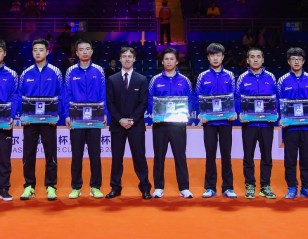
Li-Ning – A Stringing Success! 20 June 2016
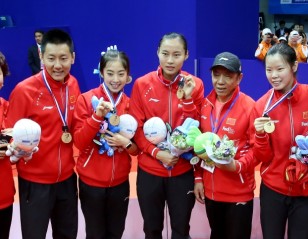
China Brook No Challenge – Uber Cup Review 27 May 2016
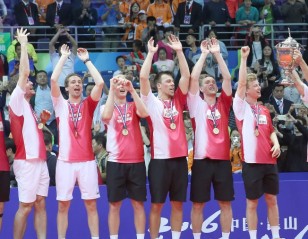
Denmark Crowned Kings of the World: TOTAL BWF Thomas & Uber Cup... 22 May 2016
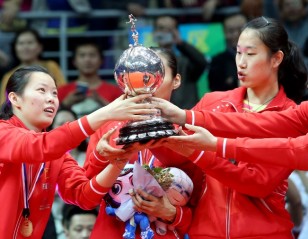
Title No.14 for China – TOTAL BWF Thomas & Uber Cup Finals... 21 May 2016
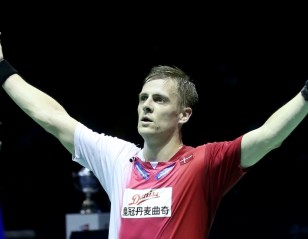
Denmark Fly High – Semi-finals Session 2: TOTAL BWF Thomas & Uber... 21 May 2016
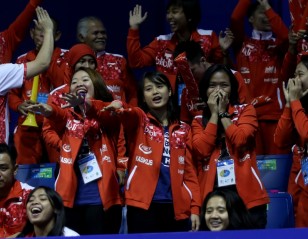
Indonesia Storm into Final – Semi-finals Session 1: TOTAL BWF Thomas &... 20 May 2016
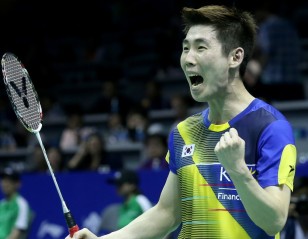
Korea Shock China; Japan Out – Quarter-finals Session 2: TOTAL BWF Thomas... 20 May 2016
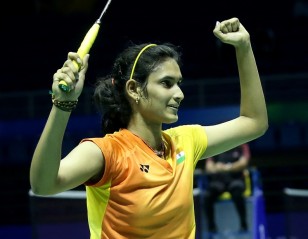
Shivani Aces it for India – Quarter-finals Session 1: TOTAL BWF Thomas... 19 May 2016
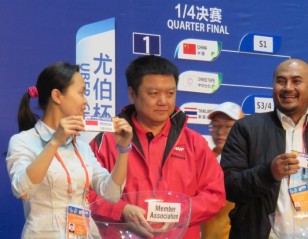
China Draw Korea in Thomas Cup Quarter-finals 19 May 2016
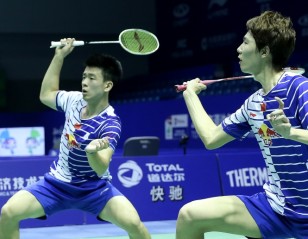
China Blow Away Japan – Day 4 Session 3: TOTAL BWF Thomas... 18 May 2016
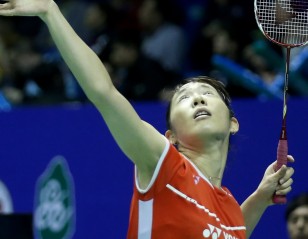
Japan Struggle to Beat India – Day 4 Session 2: TOTAL BWF... 18 May 2016
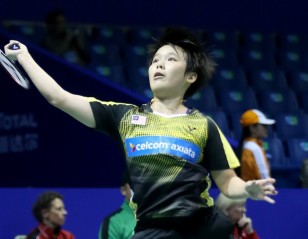
Denmark Top Group D – Day 4 Session 1: TOTAL BWF Thomas... 18 May 2016
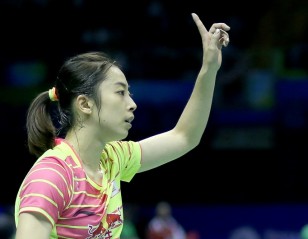
Indonesia Outclass Thailand – Day 3 Session 3: TOTAL BWF Thomas &... 17 May 2016
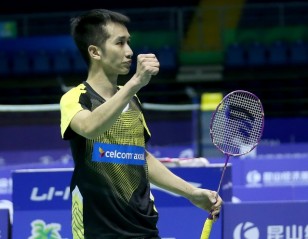
Korea Singed by Malaysian Singles – Day 3 Session 2: TOTAL BWF... 17 May 2016
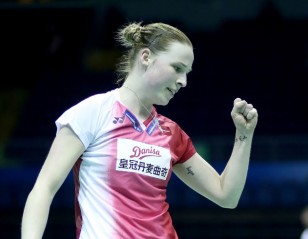
Kjaersfeldt, Madsen Drive Danish Success – Day 3 Session 1: TOTAL BWF... 17 May 2016
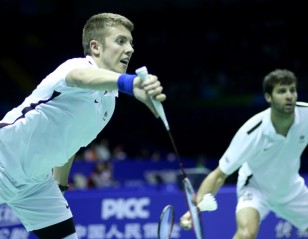
China Down Battling French – Day 2 Session 3: TOTAL BWF Thomas... 16 May 2016
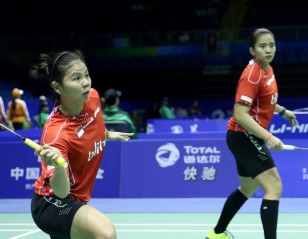
Indonesia Prevail Over Hong Kong – Day 2 Session 2: TOTAL BWF... 16 May 2016
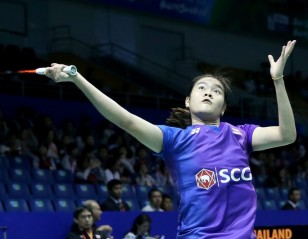
Thailand Continue to Cruise – Day 2 Session 1: TOTAL BWF Thomas... 16 May 2016
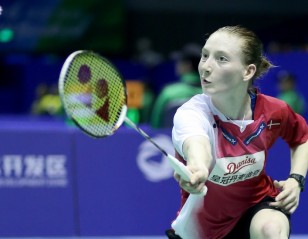
Madsen Swings it for Denmark – Day 1 Session 3: TOTAL BWF... 15 May 2016
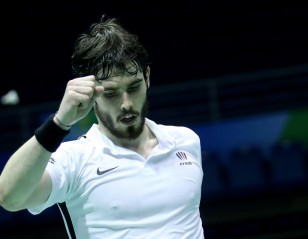
Japan Shaken by Inspired France – Day 1 Session 2: TOTAL BWF... 15 May 2016
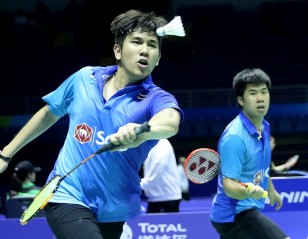
Strong Start by Thailand – Day 1 Session 1: TOTAL BWF Thomas... 15 May 2016
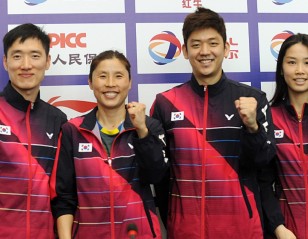
TOTAL BWF Thomas & Uber Cup Finals 2016: Opening Salvos Fired as... 14 May 2016
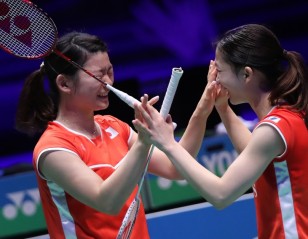
TOTAL BWF Uber Cup Preview: China, Japan Hold the Aces 12 May 2016
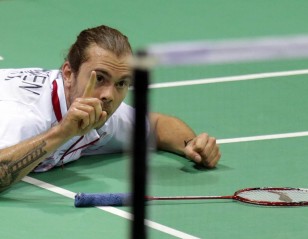
TOTAL BWF Thomas Cup Preview: Can Denmark Break the Jinx? 11 May 2016
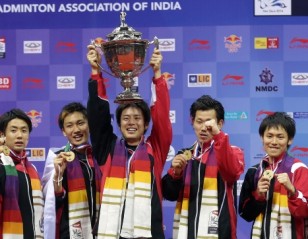
Japan Face French Obstacle in Thomas Cup Opener 19 April 2016
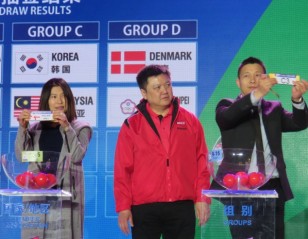
Powerhouses China, Japan in Group A of Thomas Cup 21 March 2016
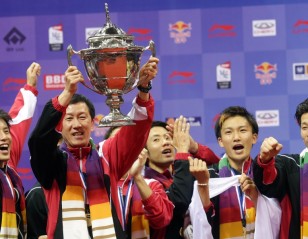
Defending Champions Japan Seeded 5th for Thomas Cup 4 March 2016
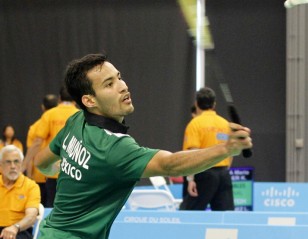
Mexico, New Zealand in Thomas Cup final round 23 February 2016
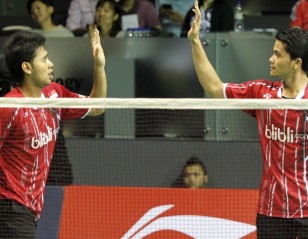
Indonesia, China Emerge Champions – Badminton Asia Championships finals 22 February 2016
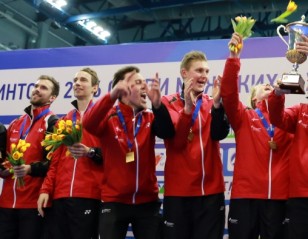
Denmark Unchallenged at the Top: European Men’s & Women’s Team Championships finals 22 February 2016
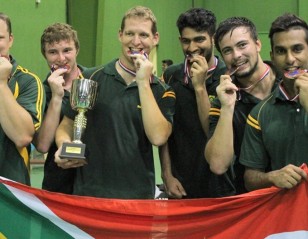
SA, Mauritius Crowned Champions: Africa Continental Team Championships finals 21 February 2016
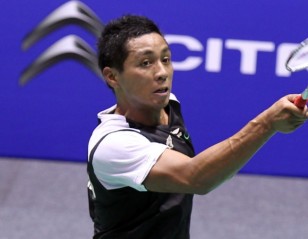
New Zealand, Australia Reign Supreme: Oceania Men’s & Women’s Team Championships finals 21 February 2016
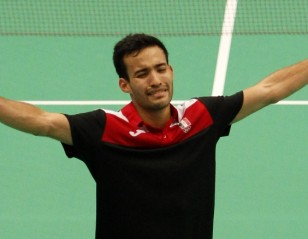
Mexico Clinch Men’s Title: Pan Am Team Continental Championships finals 21 February 2016
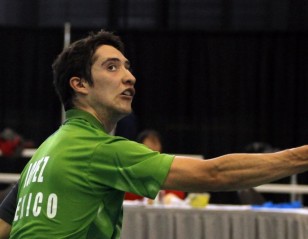
Mexico, Canada in Final: Pan Am Team Continental Championships – Day 3 20 February 2016
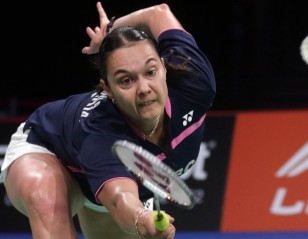
Bulgaria, Spain in Last-Four: European Men’s & Women’s Team Championships quarter-finals 20 February 2016
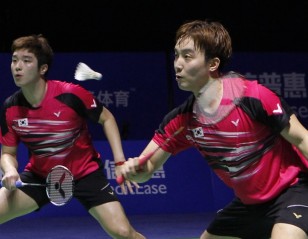
China Knocked Out – Badminton Asia Team Championships quarter-finals 20 February 2016
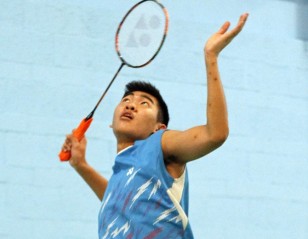
Garrido, Ho-Shue Shine: Pan Am Team Continental Championships – Day 2 19 February 2016
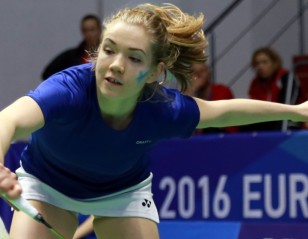
Finland in Quarter-finals: European Men’s & Women’s Team Championships – Day 3 19 February 2016
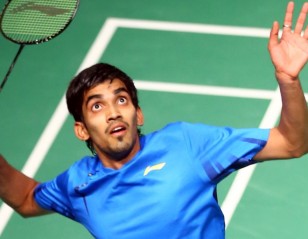
India Stun China: Badminton Asia Team Championships – Day 4 19 February 2016
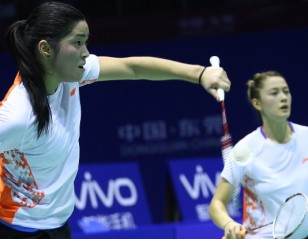
Australia Win Exciting Final – Oceania Mixed Team Championships 18 February 2016
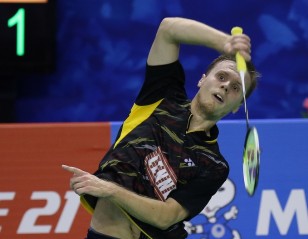
Estonia Edge Past Hungary: European Men’s & Women’s Team Championships – Day... 18 February 2016
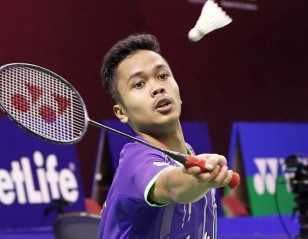
Indonesia Beat Chinese Taipei: Badminton Asia Team Championships – Day 3 18 February 2016
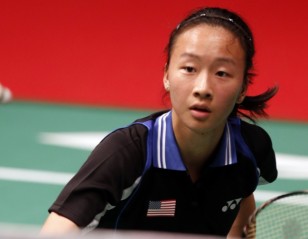
Iris Wang Guides USA to Win: Pan Am Team Continental Championships –... 18 February 2016
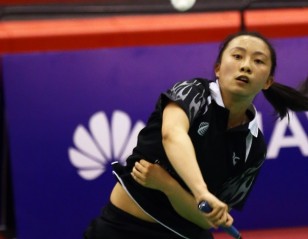
Easy for New Zealand: Oceania Mixed Team Championships – Day 2 17 February 2016
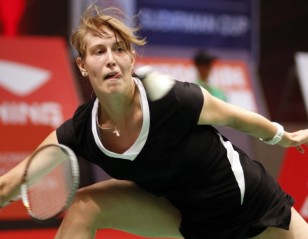
Narrow Win for Ukraine – European Men’s & Women’s Team Championships –... 17 February 2016
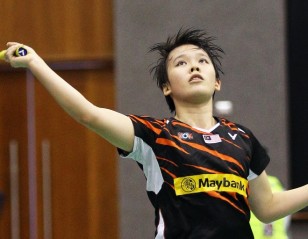
Close Shave for Malaysia: Badminton Asia Team Championships – Day 2 17 February 2016

Strong Start for New Caledonia – Oceania Mixed Team Championships Day 1 16 February 2016
